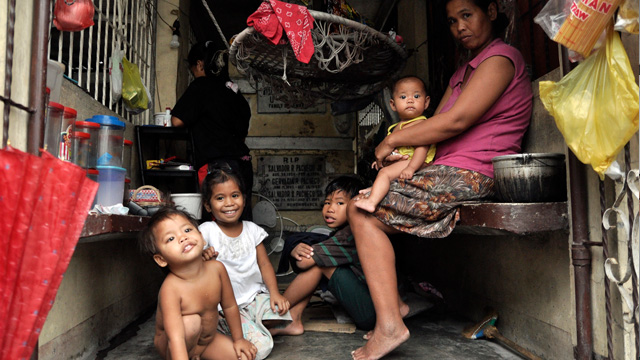SUMMARY
This is AI generated summarization, which may have errors. For context, always refer to the full article.

MANILA, Philippines – Hunger incidence in the Philippines worsened this year, based on a report released by the International Food Policy Research Institute (IFPRI).
In IFPRI’s 2012 Global Hunger Index (GHI) survey, the Philippines slipped 4 places to 31st in terms of hunger incidence, with a score of 12.2. The country ranked 27th in 2011, with a score of 11.5.
“An increase in the GHI indicates a worsening of a country’s hunger situation. A decrease in the GHI indicates an improvement in a country’s hunger situation. GHI scores were not calculated for countries with very small populations,” IFPRI explained.
However, the IFPRI said hunger incidence in the Philippines has seen a gradual decline in the last two decades. The country’s hunger incidence scores were 19.9 in 1990, 17.6 in 1996, and 14.2 in 2000.
The IFPRI took into account the proportion of undernourished people in the population, and available data on underweight children and child mortality in calculating the scores.
ASEAN counterparts
Among ASEAN countries, the Philippines had the second-highest hunger incidence this year, next to Cambodia, which had a score or 19.6.
Indonesia came next with 12, followed by Vietnam, with 11.2.
The country with the least hunger incidence was Malaysia, with a score of 5.1. Thailand had a score of 8.1.
Pressure on world resources
The IFPRI said the world’s resources – water, land, and energy – are under threat due to greater food demands.
IFPRI said the unsustainable use of land, water, and energy is threatening food security in the world’s poorest and most vulnerable countries.
“If local, national, and international natural resource policies focus on sustainable, long-term gains, if policies are coordinated and tradeoffs among land, water, and energy policies are minimized, we can strengthen the global food system while preventing resource depletion,” IFPRI Deputy Division Director Claudia Ringler said.
“Such a shift to sustainable food security would benefit billions of people today and many more in future decades,” she added.
To improve food security, IFPRI recommended that countries:
- Secure land and water rights; support the newly adopted Voluntary Guidelines on the Responsible Governance of Tenure of Land, Fisheries, and Forests;
- Phase out inefficient subsidies for water, energy, and fertilizers, in particular biofuel mandates in Europe and the United States, and encourage market solutions that promote efficient use of natural resources;
- Scale up technical solutions, particularly those that conserve natural resources, and foster more efficient and effective use of land, energy, and water from farm to plate; and
- Tame the primary drivers of natural resource scarcity, by, for example, addressing demographic change through giving women access to education and reproductive health services; raising incomes and lowering inequalities; and mitigating and adapting to climate change through agriculture.
– Rappler.com
Add a comment
How does this make you feel?
There are no comments yet. Add your comment to start the conversation.